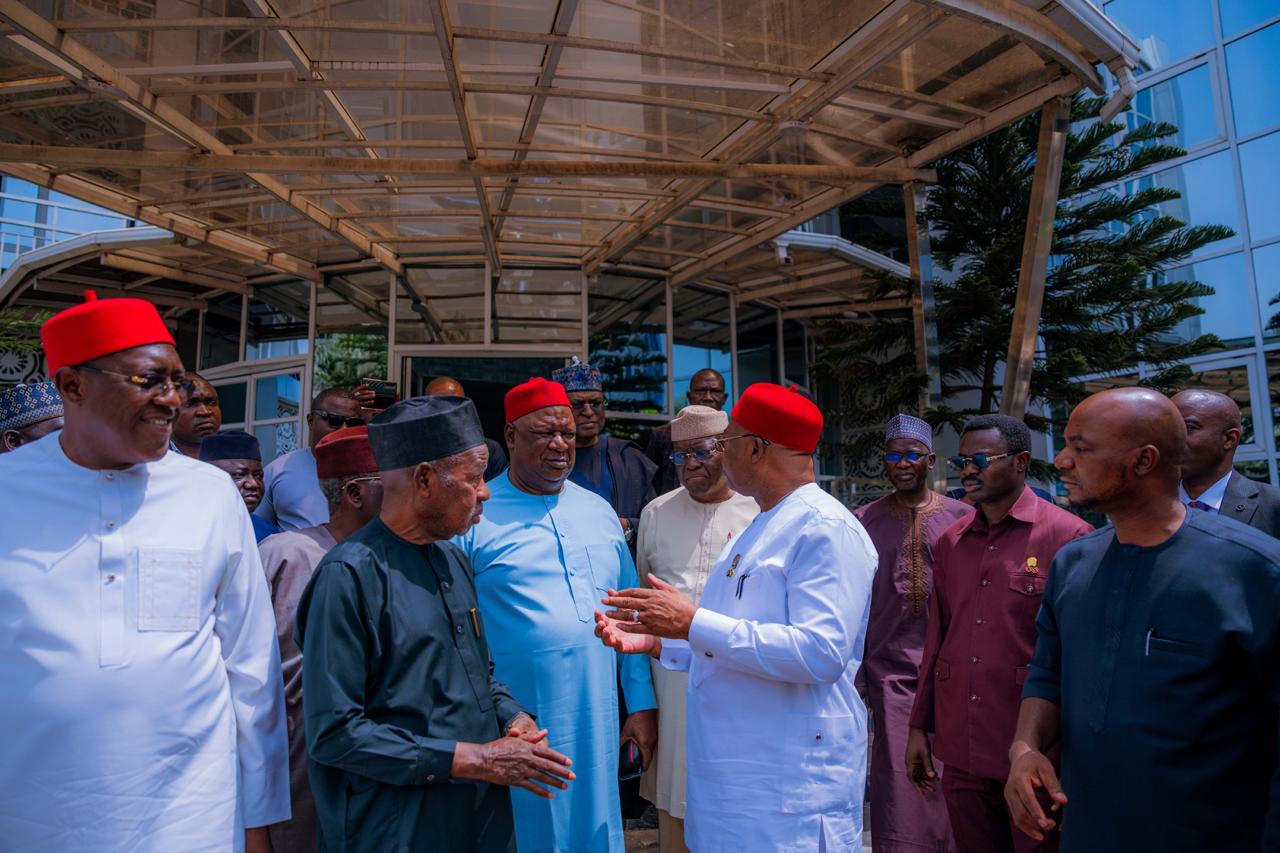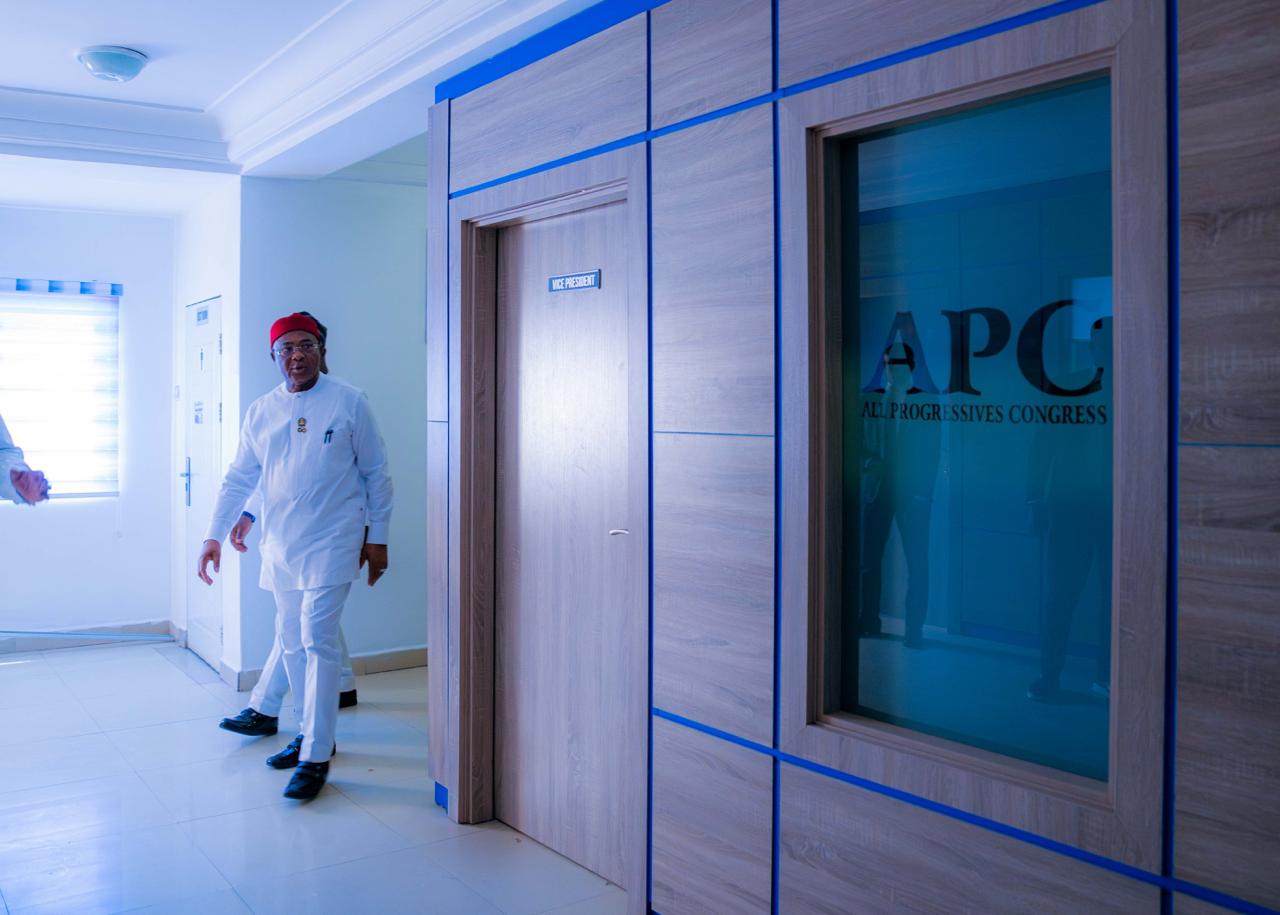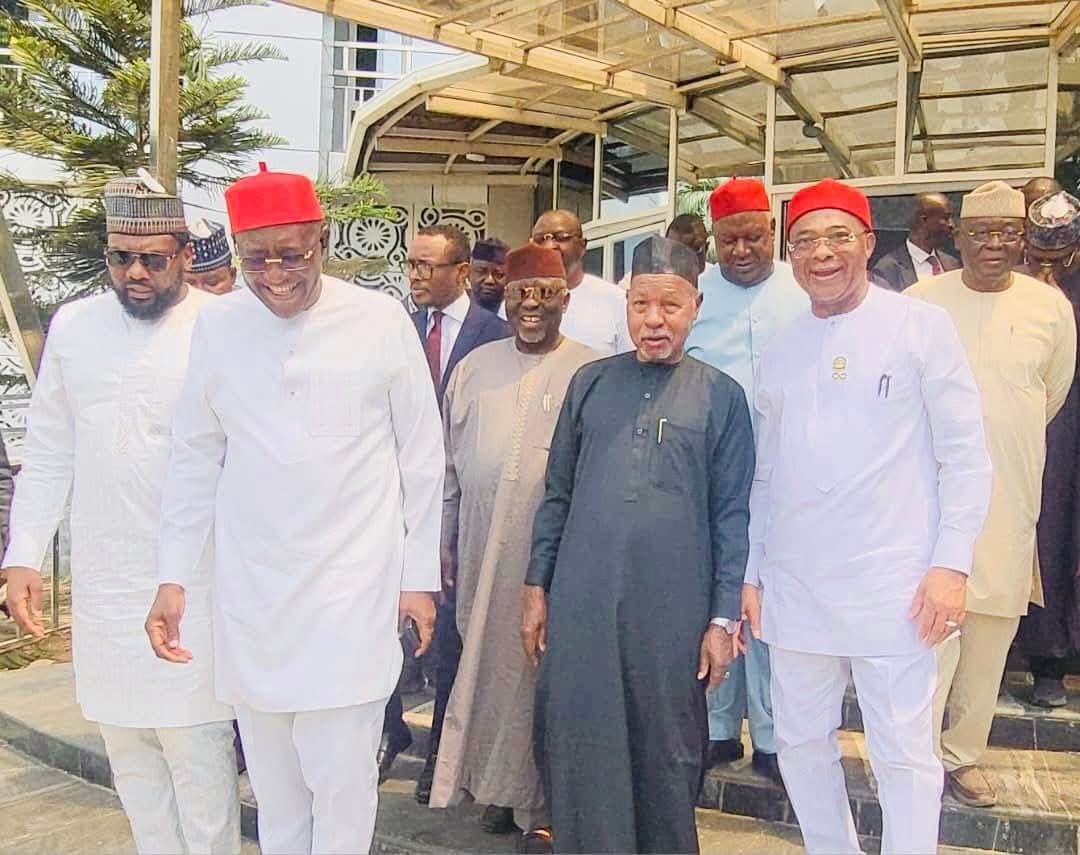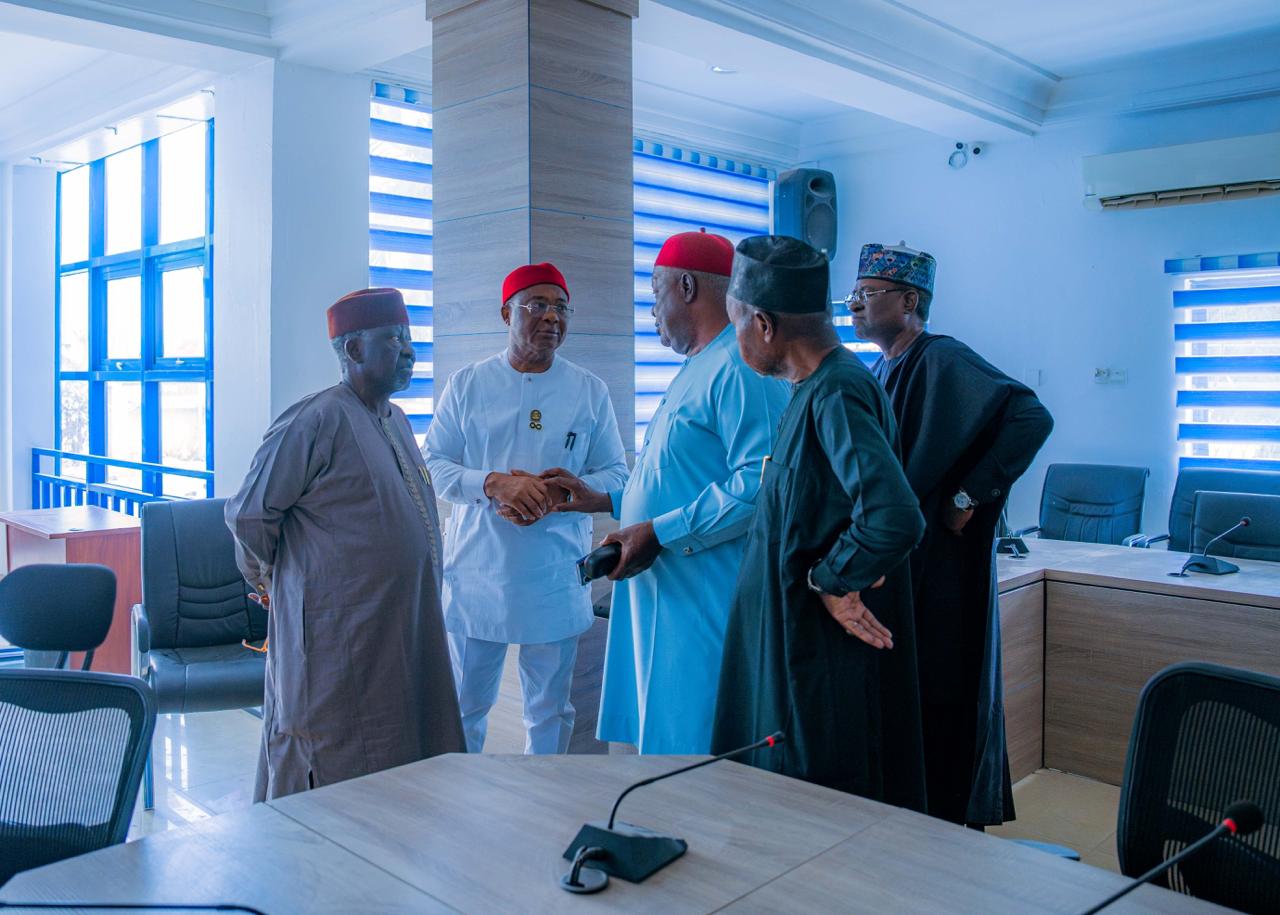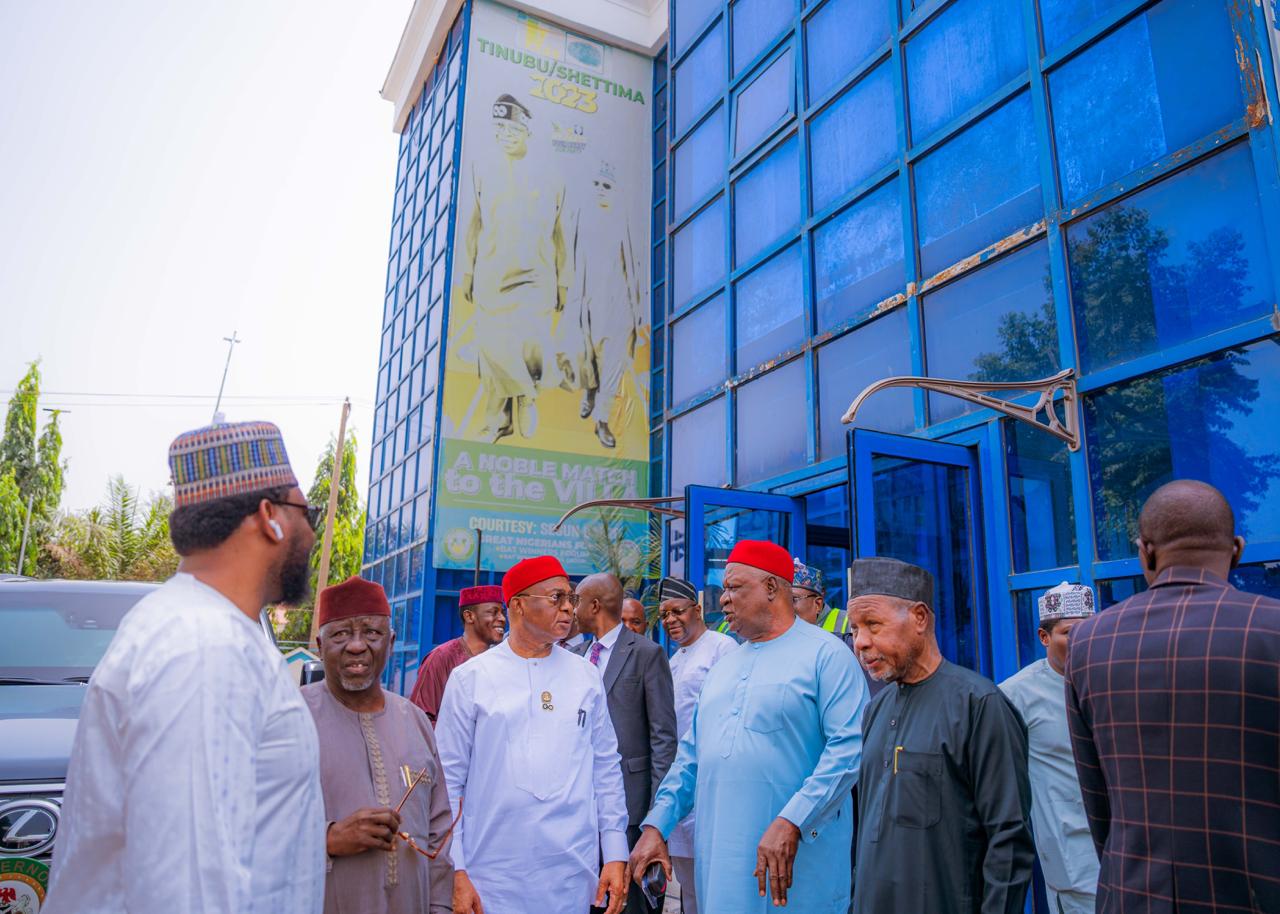Business
NASRE Advises FG On Food Crisis, Forex Shortage Amid Calls To Suspend Import Ban
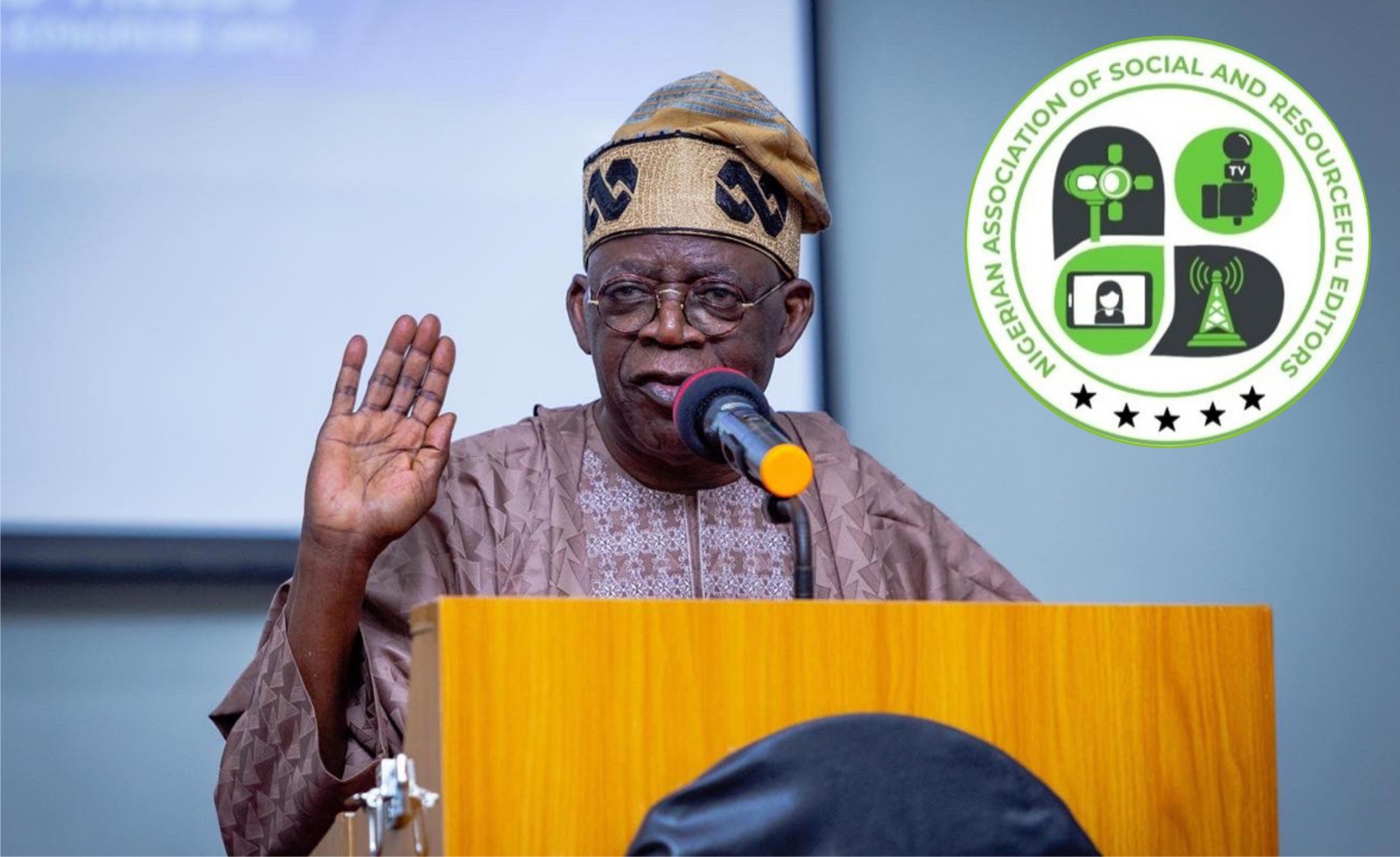
NASRE Advises FG On Food Crisis, Forex Shortage Amid Calls To Suspend Import Ban
As Nigeria finds itself at a critical crossroads, grappling with simultaneous challenges of a food crisis and a foreign exchange (forex) shortage.
This is even as the nation seeks solutions to mitigate these pressing issues, the debate over whether to open its borders for importation has intensified.
The food crisis gripping Nigeria has raised concerns about food security and access to essential nutrition for millions of citizens.
Adverse weather conditions, supply chain disruptions, and other factors have contributed to dwindling food supplies and soaring prices, placing a significant strain on households and exacerbating the vulnerability of already marginalized communities.
Meanwhile, the forex shortage has hampered Nigeria’s ability to import essential goods and raw materials, further exacerbating supply chain disruptions and exacerbating inflationary pressures.
Industries reliant on imported inputs, including agriculture, manufacturing, and healthcare, have been particularly hard hit, impeding economic growth and development.
In response to these challenges, some stakeholders advocate for opening Nigeria’s borders to facilitate the importation of food and other essential commodities.
Proponents argue that increased importation could help alleviate immediate food shortages, stabilize prices, and provide relief to vulnerable populations facing hunger and malnutrition.
However, others caution against the potential risks of opening borders amid a forex shortage. Critics raise concerns about the impact on domestic production and self-sufficiency, as well as the long-term consequences of relying heavily on imported goods. They emphasize the need to prioritize investments in domestic agriculture and infrastructure to build resilience against future crises.
As Nigeria navigates these complex issues, the government faces the daunting task of balancing short-term relief efforts with long-term strategies for sustainable development and economic resilience.
Proffering suggestion on how the government can address the unending inflationary pressures, Forex shortages, food prices hike and revitalise the nation’s economy, the Nigerian Association of Social and Resourceful Editors (NASRE), has advised the Nigerian government to adopt collaborative efforts involving policymakers, industry stakeholders, civil society organizations, and international partners to identify holistic solutions that address both immediate needs and underlying structural challenges.
On the debate over whether Nigeria should open its borders for importation amid the food crisis and forex shortage, the President of the advocacy group, Mr Femi Oyewale, underscores the urgency of coordinated action and innovative thinking.
According to him, now more than ever, solidarity, cooperation, and forward-thinking policies are needed to ensure the well-being and prosperity of all Nigerians.
“The question of whether Nigerian borders should be opened for food importation in the face of a food crisis is complex and multifaceted. However, there are factors to consider, which basically, Domestic Agricultural Capacity. Because opening borders for food importation could undermine domestic agricultural production by flooding the market with cheaper imported goods.
“However, if domestic production is insufficient to meet demand, importing food may be necessary to avoid shortages,” he said.
On the economic implications of borders opening, the President of NASRE, Oyewale, said: “Importing food can have economic ramifications, both positive and negative. On one hand, it can provide access to a wider variety of foods and potentially lower prices for consumers. On the other hand, it may negatively impact local farmers and exacerbate trade imbalances.”
The resourceful editors, while commenting on Food Security, pointed out that relying heavily on imported food leaves a country vulnerable to supply chain disruptions and price fluctuations in the global market. Therefore, it urged the federal government to develop a robust domestic agricultural sector, which is crucial for long-term food security.
According to Oyewale, the Nigerian government must consider its broader economic and agricultural policies when making decisions about food importation. This includes evaluating subsidies, tariffs, and investment in agricultural infrastructure.
“Importing food often involves long-distance transportation, which contributes to greenhouse gas emissions and environmental degradation. Promoting local production can help reduce the carbon footprint associated with food consumption.
“Food is not just a commodity; it is essential for human well-being. Government policies should prioritize ensuring access to nutritious and culturally appropriate food for all citizens, particularly those most vulnerable to food insecurity,” he added.
The Nigerian Association of Social and Resourceful Editors, NASRE, therefore, noted that the decision to open Nigerian borders for food importation during a food crisis should be approached cautiously, taking into account the country’s domestic agricultural capacity, economic implications, food security goals, environmental concerns, and social welfare considerations.
“A balanced approach that supports both domestic production and responsible trade practices may be necessary to address immediate food shortages while also promoting long-term food security and sustainability,” the Association stated.
Business
Aig-Imoukhuede Foundation opens applications for 6th Cohort Programme
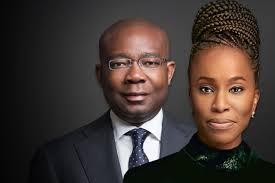
Aig-Imoukhuede Foundation opens applications for 6th Cohort Programme
The Aig-Imoukhuede Foundation is pleased to announce that applications are now open for the sixth cohort of its transformative AIG Public Leaders Programme (AIG PLP).
This flagship six-month executive education initiative, delivered by the University of Oxford’s Blavatnik School of Government, is designed to empower high-potential public sector leaders across Africa with the tools, networks, and strategic insight required to deliver meaningful reform across African public institutions.
Applications are now open to qualified public servants from all English-speaking African countries and will close on Sunday, April 12, 2026. The programme commences in October 2026.
Since its inception in 2021, the AIG PLP has built a formidable reputation for creating tangible impact.
Alumni from the programme have gone on to design and implement more than 230 reform projects within their ministries, departments, and agencies across Africa.
An impact survey revealed that 62% of alumni have earned promotions or assumed expanded leadership roles post-training, demonstrating the programme’s direct effect on career advancement and institutional influence.
“Across Africa, the complexity of public sector challenges demands more than good intentions. It requires reformers who understand systems, can navigate institutional realities, and are equipped to implement sustainable change.
The AIG PLP is designed to meet this need,” said Ofovwe Aig-Imoukhuede, Executive Vice-Chair of the Aig-Imoukhuede Foundation.
As part of the programme, a PLP alumna, Titilola Vivour-Adeniyi, Executive Secretary of Lagos State DSVA, launched a secure self-reporting tool that allows survivors of domestic and sexual abuse safely document incidents and preserve evidence.
Survivors are already accessing support, and the tool ensures that crucial proof is protected until justice can be sought. This is one of over 230 impactful reform projects being implemented across sectors as diverse as healthcare, finance, agriculture, and education.
We are seeing proof every day that investing in the capacity and leadership potential of people, delivers the kind of transformation that policy alone cannot achieve.”
The AIG PLP is a blended learning experience that combines online sessions with an intensive residential module.
It is offered at no cost to selected participants, with the Foundation covering all costs of the programme including accommodation and feeding during the residential weeks.
Participants gain direct access to world-class faculty from the University of Oxford, and learn to tackle core public sector challenges such as: Negotiating in the public interest. Harnessing digital technology for governance.
Strengthening public organisations.
Upholding integrity in public life.
The curriculum culminates in a capstone reform project, where participants apply their new skills to a real-world challenge within their institution.
This practical component ensures that learning translates directly into actionable solutions.
Interested candidates are encouraged to apply early. For more details on the application process and to apply, please visit the Aig-Imoukhuede Foundation website.
Business
Renewed Hope Ambassadors Inspect RHA Secretariat
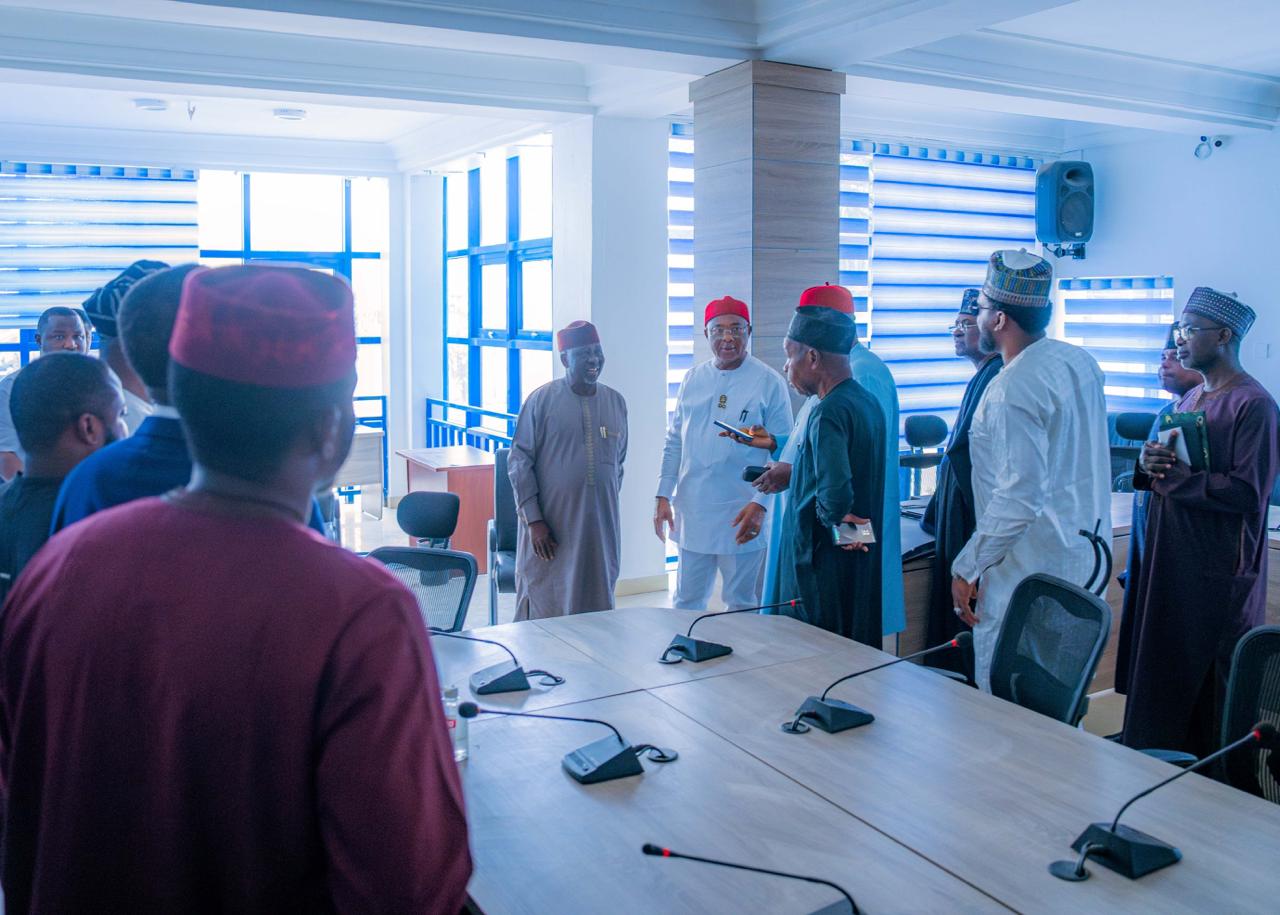
Renewed Hope Ambassadors Inspect RHA Secretariat
Renewed Hope Ambassadors, led by its Director-General and the Governor of Imo State, Hope Uzodinma, alongside Zonal Coordinators (NW, NC, SE), the Media & Publicity Directorate, and other key stakeholders, inspected the RHA Secretariat two days after President Bola Tinubu unveiled the Renewed Hope Ambassadors grassroots engagement drive in Abuja.
Business
Harmony Gardens’ Ibeju-Lekki Portfolio Crosses $1bn

Harmony Gardens’ Ibeju-Lekki Portfolio Crosses $1bn
Harmony Garden & Estate Development Limited has expanded its development activities across Ibeju-Lekki, pushing the projected long-term value of its estate portfolio beyond $1 billion.
Led by Chief Executive Officer Hon. Dr. Audullahi Saheed Mosadoluwa, popularly know Saheed Ibile, the company is developing seven estates within the Lekki–Ibeju corridor. Details available on Harmony Garden & Estate Development show a portfolio spanning land assets and ongoing residential construction across key growth locations.
A major component is Lekki Aviation Town, where urban living meets neighborhood charm, located near the proposed Lekki International Airport and valued internally at over $250 million. The development forms part of the company’s broader phased expansion strategy within the axis.
Other estates in the corridor tagged as the “Citadel of Joy” (Ogba-idunnu) include Granville Estate, Majestic Bay Estate, The Parliament Phase I & II, and Harmony Casa Phase I & II.
With multiple projects active, the rollout of the Ibile Traditional Mortgage System, and structured expansion underway, Harmony Garden & Estate Development Ltd continues to deepen its presence within the fast-growing Ibeju-Lekki real estate market.
-

 celebrity radar - gossips7 months ago
celebrity radar - gossips7 months agoWhy Babangida’s Hilltop Home Became Nigeria’s Political “Mecca”
-

 society5 months ago
society5 months agoReligion: Africa’s Oldest Weapon of Enslavement and the Forgotten Truth
-

 society7 months ago
society7 months agoPower is a Loan, Not a Possession: The Sacred Duty of Planting People
-

 news3 months ago
news3 months agoWHO REALLY OWNS MONIEPOINT? The $290 Million Deal That Sold Nigeria’s Top Fintech to Foreign Interests










